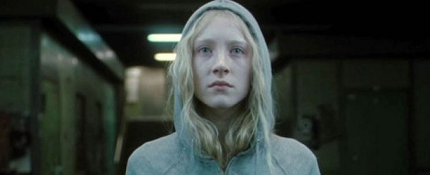 For the past 20 years, I've lived in the Phoenix metro area. It's no New York City in terms of the variety of our diversity, but it's certainly a place where you notice the lack of an official language. The Spanish language is everywhere. This type of experience may or may not be common to you; if you reside in California or Washington, you might be learning Japanese without trying; if you're in Toronto, your proximity to Montreal might be enhancing your mastery of French. And if you live in New Orleans, well hell - you might be picking up French, Spanish and Creole.
For the past 20 years, I've lived in the Phoenix metro area. It's no New York City in terms of the variety of our diversity, but it's certainly a place where you notice the lack of an official language. The Spanish language is everywhere. This type of experience may or may not be common to you; if you reside in California or Washington, you might be learning Japanese without trying; if you're in Toronto, your proximity to Montreal might be enhancing your mastery of French. And if you live in New Orleans, well hell - you might be picking up French, Spanish and Creole.It's funny - for the sake of simplicity, I'm all for America adopting English as it's official language, but the melting pot of languages as seen in Code 46 appeals to me more than anything else. In the global community depicted, people from all over the world are not just bi- or tri-lingual, they're simultaneously multi-lingual, peppering their speech with a palabra from Español here, a bon huit from Français there, along with Chinese, Arabic and other languages as well. It might be a bit 'pixies and fairy dust,' but to me it represents a hopeful future in which the world gets small as we embrace other tongues and other cultures. After all, it's harder to have miscommunication problems with the world at-large when you're all speaking the same language.
Roger Ebert, in his two-and-a-half star review of one of my favorite films of the Noughties, said:
"The problem with Code 46 is that the movie, filled with ideas and imagination, is murky in its rules and intentions. I cannot say I understand the hows and whys of this future world, nor do I much care, since it's mostly a clever backdrop to a love affair that would easily teleport to many other genres: Investigator falls in love with mystery woman, helps her commit crime, risks being left hanging out to dry. Double Indemnity."
I can't argue much with his basic premise - taken to its basest level, the storyline of this Michael Winterbottom drama is not earthshatteringly original. But what film's plot could survive being narrowed down to 18 words and come out feeling fresh anyhow?
Similarly, while I'm loathe to boil down my appreciation of Code 46 to a substance vs. style argument, I must admit that the style is where my love for it comes from most. It's set, a la the similarly genetically-enhanced Gattaca, in a vague near-future, in a time where the ozone has eroded to such a level that day has become night and night day, turning the world's population into vampires in their attempts to escape the harsh effects of the sun. Those with means, and with "papelles" (similar to visas), live in megalopolises while the unlucky huddled masses are forced to live a nomadic life in the vast deserted spaces in between.
Samantha Morton's Maria works for the Sphinx, a Customs-like corporation that deems who is and isn't allowed to travel and live within the confines of the cities. "The Sphinx knows all," say the characters. Specifically, Maria works with the papelles themselves, and having grown up "outside" prior to gaining entry, is sympathetic to those wishing to travel to places the Sphinx won't allow. So she cheats the system, and in time, an investigator (Tim Robbins) is sent to determine which of the workers is illegally smuggling papelles. Given an "empathy virus" prior to his arrival that allows him intuition into people's minds, Robbins' William Geld is put in a position to quickly identify the culprit. But, for reasons tied to the title and prologue, William feels a connection to Maria and, despite his best intentions does not turn her in, instead falling in love with her.
So yeah, the story's rote. Only it's not. Like the literal talk soup going on, this simple love story is sprinkled by writer Frank Cottrell Boyce with a great twist that adds a heaviness to the proceedings that most love stories can't touch. At the same time, Winterbottom tosses in subtle futuristic technologies that are not only ingenious but believable for a near future (for example, when William enters his Shanghai hotel room with the bright morning sunshine blaring in through the floor-to-ceiling windows, a simple touch of a remote button tints them all by many shades; later, we see that the television he's watching is not a stand-alone set, but embedded into one of the windows. Brilliant.).
I'll take my chances with the Sphinx - perfect or not, this is a world I want to live in.


























3 people have chosen wisely: on "Counting Down the Zeroes: Code 46 (2003)"
I love that the futuristic elements are subtle... not yelling at you to look at the new thing-a-ma-bob some special effects dude created. The real-ness of their relationship is urgent and fresh but also quite sad. Oh, and I totally love Samantha Morton.
I like calling the decade "The Naughties" (even though that isn't how you spelled it).
I actually caught this movie on Showtime maybe 2-3 years ago... and remember not liking it at all.
I might try to give it another shot some day, though.
Post a Comment